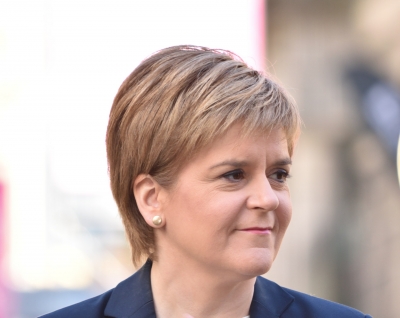The Scottish Government has announced that it will publish its plans for Scotland’s post-Brexit relationship with the EU by the end of 2016.
The proposal will outline how Scotland could maintain membership of the single market if the rest of the UK were to leave, as well as suggesting additional powers for Holyrood.
The announcement comes after Nicola Sturgeon’s demands for a ‘flexible’ Brexit in order to protect Scotland’s interests in Europe were met by stern resistance from Theresa May. Talks between the UK Prime Minister and the devolved administrations left the First Minister “deeply frustrated” and with no further information on the nature of the deal the UK government is trying to achieve.
In her opening speech at the National Economic forum in Edinburgh the First Minister said that a hard Brexit would cost Scotland 80,000 jobs within a decade and called for ‘an all-Scotland coalition of support for the single market’ – made up of politicians, business, universities and others in order to resist a ‘hard Brexit’.
However, the technical challenges of Scotland maintaining its relationship with the single market if the UK were to leave are plentiful and would dramatically alter the economic relationship between Scotland and the rest of the UK.
The single market comprises of free movement of goods, services, capital and workers, and these freedoms are considered inseparable to ensure equal opportunity for its members. The European Union also abolished tariffs between member states, allowing imported goods to be circulated freely within EU.
If Scotland were to remain fully within the single market and the customs union, with the rest of the UK leaving, it is likely there would have to be some sort of hard economic border with England. Otherwise goods, services and people would be able to move from one economic union to another without being subject to the necessary customs checks and tariffs.
Additionally, more powers would need to be devolved to Holyrood in order for the necessary EU directives and regulations to be implemented in Scotland in areas such as employment, migration and social policy.
The First Minister will find it extremely challenging to maintain Scotland’s relationship with the EU in a distinct manner from the rest of the UK, and many observers await the Scottish Government’s more detailed proposals with interest. It seems clear that the Prime Minister is unlikely to accept a different relationship for Scotland and the SNP may therefore argue that full independence is Scots’ only remaining option to maintain close links with the EU.




